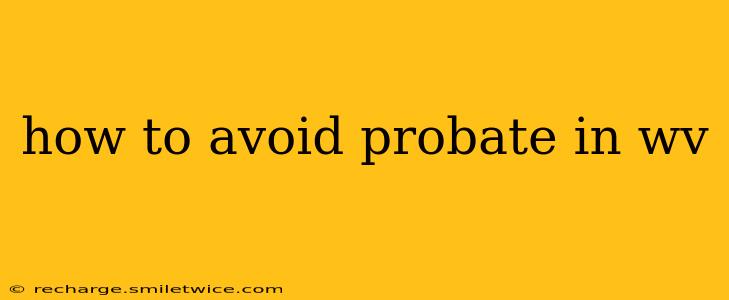Probate, the court-supervised process of distributing a deceased person's assets, can be time-consuming, expensive, and public. Many West Virginians seek ways to avoid this process entirely. Fortunately, several strategies can help minimize or eliminate the need for probate. This guide explores those options, offering insights into how to protect your assets and your family's future.
What is Probate in West Virginia?
Before delving into avoidance strategies, it's crucial to understand what probate entails in West Virginia. Probate is the legal procedure where a court validates a will, identifies and values assets, pays debts and taxes, and distributes the remaining assets to heirs as designated in the will or, if no will exists (intestacy), according to state law. This process can be lengthy, involving court appearances, appraisals, and potentially legal disputes. The fees associated with probate can significantly reduce the estate's value.
How to Avoid Probate in WV: Key Strategies
Several methods can help you sidestep or minimize the probate process in West Virginia. Let's examine the most effective:
1. Establishing a Living Trust
A revocable living trust is a powerful tool for probate avoidance. You, as the grantor, transfer assets into the trust, retaining control during your lifetime. Upon your death, the trustee (you or a designated individual) distributes assets according to the trust's terms, bypassing the probate court entirely. This offers privacy, control, and avoids the delays and costs associated with probate.
2. Joint Ownership with Right of Survivorship
This method involves holding assets jointly with another person, typically a spouse or child. Upon the death of one owner, the asset automatically transfers to the surviving owner, avoiding probate. This is simple for assets like bank accounts and real estate but might not be suitable for all assets. It's crucial to understand the implications of joint ownership before employing this strategy.
3. Payable-on-Death (POD) and Transfer-on-Death (TOD) Designations
POD designations are commonly used for bank accounts and other financial assets. TOD designations apply to brokerage accounts and, in some cases, real estate. These designations instruct the financial institution or registrar to transfer the asset directly to the named beneficiary upon the owner's death, avoiding probate.
4. Small Estate Affidavit
West Virginia allows for a simplified process for estates with relatively small values. A small estate affidavit allows for quicker and less expensive distribution of assets without formal probate if certain criteria are met. The exact value limit for a small estate affidavit varies, so it's vital to consult with a legal professional to determine its applicability.
5. Life Insurance and Retirement Accounts
Life insurance policies and retirement accounts (like IRAs and 401(k)s) usually have designated beneficiaries. The proceeds from these accounts are typically paid directly to the beneficiaries, bypassing probate. Ensuring these designations are up-to-date is crucial to avoid complications.
Frequently Asked Questions (PAAs)
Here we address some common questions about avoiding probate in West Virginia:
What are the costs associated with probate in West Virginia?
Probate costs vary depending on the size and complexity of the estate. They include court fees, attorney fees, appraisal fees, and executor fees. These costs can eat into the estate's value significantly, highlighting the importance of probate avoidance strategies.
How long does probate take in West Virginia?
The probate process length varies, depending on the estate's complexity and any potential disputes. It can range from several months to several years. Employing probate avoidance strategies drastically reduces this timeframe.
What assets are typically included in probate?
Assets typically subject to probate include real estate held solely in the deceased's name, vehicles not titled jointly, and personal property not otherwise designated for transfer outside probate.
Is it always best to avoid probate?
While probate avoidance is often desirable due to the cost and time involved, it's not always the optimal approach. Consult with an estate planning attorney to determine the best strategy for your specific circumstances.
Conclusion
Avoiding probate in West Virginia offers significant benefits, including reduced costs, time savings, and increased privacy. By understanding the available strategies and consulting with a qualified estate planning attorney, you can effectively protect your assets and ensure a smoother transition for your loved ones. Remember to regularly review and update your estate plan to reflect changes in your circumstances and financial situation. This proactive approach guarantees your wishes are honored and your legacy protected.
